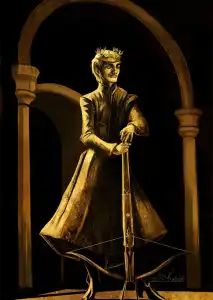Chapter 427: Difficulty in Selecting a King |
Without Austria creating obstacles, the London Conference began to develop in a manner favorable to the Kingdom of Prussia. On September 1, 1867, Prussia and Denmark signed a ceasefire agreement.
Ceding territory was unavoidable; Prussia had completely absorbed the Duchies of Schleswig and Holstein and was certainly not going to give them up.
As for indemnities, they were out of the question since the Kingdom of Denmark had found a new backer — the Nordic Federation. Although this newly forming state wasn’t as powerful as the Kingdom of Prussia, it was still capable of defending itself.
The Swedes did not contest the control over the Duchies of Schleswig and Holstein primarily because they were concerned that Denmark’s strength would become too great, which would be detrimental to their own national control.
Additionally, King Charles XV of Sweden wanted to annex Finland, which would put him in opposition to the Russians. Engaging in conflict with Prussia as well would place too much strain on national defense.
Despite this, Sweden still managed to secure a symbolic compensation for Denmark, amounting to approximately 2 million guilders, to appease the Danes.
This was a small amount of money, and even a financially strained Kingdom of Prussia could easily afford it. To quickly settle the matter, the Prussian government readily agreed.
With a common enemy in the Russians, there would be many shared interests between Prussia and the soon-to-be-established Nordic Federation. If it weren’t for the desire to bring Denmark into the fold, the Swedish government would have long since taken advantage of the Russians’ difficulties.
From this perspective, Prussia giving up the Jutland Peninsula in exchange for an ally was a very worthwhile deal.
If they continued to decline, that would be one thing, but if the Russians became powerful again, the Kingdom of Prussia would be the first to bear the brunt.
It was necessary to be prepared for such a scenario. With an additional Nordic Federation in the north to keep the Russians in check, Prussia’s pressure would be significantly reduced.
For this reason, the Kingdom of Prussia did not make any claims regarding the Skagerrak Strait (Jutland Strait).
Of course, Prussia’s miniature navy was one of the reasons that prompted the Prussian government to give up on this. With their current naval strength, occupying it would be of no use.
...
After the Prussia-Denmark ceasefire agreement was signed, the Russian government also made concessions. On September 26, 1867, Prussia, Poland, and Russia signed a ceasefire agreement.
This time, the Russians suffered significant losses. Recognizing Poland’s independence was inevitable, and the Russian government was also forced to accept nearly all territorial demands from Prussia and Poland.
Poland became independent, Lithuania was lost, Latvia was abandoned, Belarus was not retained, and a portion of Ukraine had been taken away.
This went beyond the scope of Russian Poland, with a total territorial loss of nearly 790,000 square kilometers, a population loss of up to 20 million, and a reduction in industrial capacity by almost 30%.
In the late 18th century, Prussia, Russia, and Austria partitioned Poland, with the Russians taking the largest share of about 460,000 square kilometers. At the 1815 Congress of Vienna, they also received part of Prussian Poland as territorial compensation (Warsaw).
Altogether, these territories amounted to less than 600,000 square kilometers. Now, with both principal and interest paid back, it was enough to cause Alexander II considerable pain for a long time.
Having made territorial concessions, the Russian government naturally refused to pay indemnities. Prussia and Poland, hoping to resolve their financial crisis through war reparations, miscalculated this time.
The Russian government’s money was needed to suppress rebellions, and in this regard, Alexander II could not afford to relax his vigilance.
The threat posed by Prussia and Poland was a minor issue, comparable to a cold; whereas the threat from the rebels was like cancer — though still in its early stages, it would be fatal if not treated promptly.
When faced with two evils, it was natural to choose the lesser one, so the Russian government had to compromise with Prussia and Poland. Land cannot run away; even if it was ceded, it could be reclaimed once the internal issues were resolved.
Money, however, was different. Without money, there was no way to suppress the rebellion. If the rebels were not eliminated, the Russian government’s rule would be threatened.
According to the treaty: the Kingdom of Prussia would acquire the regions of Lithuania, Latvia, and most of Belarus, totaling up to 286,000 square kilometers with a population of approximately 4.7 million.
Poland, on the other hand, gained the remaining territories, totaling about 504,000 square kilometers. This included Poland’s core region Warsaw, parts of Belarus, and most of Western Ukraine, with the border extending to Kyiv.
Clearly, the Russians suffered a significant loss this time, even losing Smolensk, which is only 360 kilometers from Moscow.
In 1611, this area was occupied by the Poles, and during the negotiations, it was considered Polish territory and included in Belarus.
This did not signify the Russian government’s weakness, but rather that the area was under the actual control of the enemy, creating a fait accompli. Unless military force was used, it could not be reclaimed.
Most of the ceded land was actually under enemy control, and through negotiations, they managed to recover a significant amount of territory. During the winter campaign, the Russian army lost too much ground to the enemy, which left them without leverage in the negotiations.
The newly independent Kingdom of Poland inherited the legacy left by Russia, suddenly emerging as a rising European power with a total population of fifteen million, comparable to the pre-war Kingdom of Prussia.
Although its industrial base was not impressive, its agricultural foundation was solid. The land was mostly flat plains, so achieving a moderately prosperous life through farming was not an issue.
However, this did not satisfy the provisional government. In the age of maritime power, how could they call themselves a great power without access to the sea?
Having just gained independence, the Polish were already beginning to dream of becoming a great power.
Theoretically, Poland did have the potential to rise. Although the total population was not high, their birth rate was.
The industrial scale was not large, but Russia had left behind a significant amount of important industrial infrastructure, which, if integrated, could save a lot of development time.
The country was rich in resources, sufficient to meet the early needs of an industrial revolution. Some minerals were even abundant, such as silver, which was plentiful enough to alleviate concerns about currency issues.
Grain production was ample, allowing for exports in exchange for foreign currency to develop the domestic economy.
This was all theoretical, though. In reality, the biggest weakness was the lack of “talent.” One could not expect the Russian government to have left them with intellectuals, as most of these people had joined the revolutionary cause, preparing to make a mark in politics.
Many intellectuals are good at criticizing everything under the sun and beyond, but unfortunately, they lack practical skills.
Of course, there are occasional exceptions, but they are too few. The Second Industrial Revolution has already begun, and what the country needs is a large number of knowledgeable and skilled engineers.
In terms of population quality, Germany currently has the advantage. The countries that have implemented compulsory education are concentrated in the German region.
Neither England nor France have popularized compulsory education, and the situation in other countries is even worse. Education is a privilege for the wealthy, and while church schools occasionally provide some education to the common people, it is far from sufficient.
Having just gained national independence, the Polish have not yet become overly proud. Despite their dissatisfaction with Prussia over the issue of access to the sea, the two sides have not broken off relations completely.
The Kingdom of Poland still lacks a king, and this is causing considerable concern.
According to Polish tradition, they would definitely seek a king from abroad, and the prominent royal families in Germany are all potential candidates.
There are many issues to consider, including the diplomatic maneuvers of various countries, and the Polish parliament is currently in intense debate. The selection of a Polish king might encounter difficulties.
One clear contender for the throne is King William I of Prussia. If Poland and Prussia were to share a monarch, a union between Poland and Prussia could become a possibility.
Theoretically, forming a federal empire would be in the interests of both Poland and Prussia. They face common threats: Russia and Austria.
These two enemies are too powerful. Neither Poland nor Prussia can face them alone; only by uniting can they have the strength to resist.
Clearly, this is only theoretical. Deciding who would be the leader is a major headache, and Poland’s glorious history has become the biggest obstacle to this union.
Before the Russian threat disappeared, the Polish provisional government needed the help of the Prussians and almost compromised with the Prussian government. However, the international environment at the time did not allow it.
France and Austria did not want to see Poland and Prussia united and issued stern warnings. At a critical moment in the war, the Prussian government also dared not offend France and Austria, so this plan fell through.
Back then, they were already reluctant. Now that the immediate threat has disappeared, the Polish are even less willing to play second fiddle.
Of course, there have always been strong calls for the two countries to unite, and supporting William I as King of Poland has considerable support in the Polish parliament.
However, this most popular candidate was dismissed from the beginning.
He faced strong opposition from France, Austria, and Russia. Even if the Polish parliament supported him unanimously, William I would not dare to take the throne.
If it were a matter of merging the two countries, William I might take the risk. But facing joint opposition from the three great powers just for a shared monarchy, William I remained very hesitant.
It wasn’t just his problem; the key was that the Polish parliament was even more hesitant. Facing intervention from the great powers, they dared not proceed with a vote.
Of course, the Prussian government has not completely given up, and much of the ongoing dispute in the Polish parliament is due to their influence.
During this joint Prussian-Polish anti-Russian war, the Kingdom of Prussia also took the opportunity to infiltrate Poland. Now, more than 80% of the officers and soldiers in the Polish army have been trained by Prussian instructors.
The pro-Prussian forces within Poland are also very strong. Although people are reluctant to be subordinate to Prussia, it doesn’t mean they reject William I becoming King of Poland.
With such a significant advantage, the Prussians naturally want to seize the opportunity. They wouldn’t simply give up without trying — that’s not their style.
The international opposition is strong, mainly from France and Austria. The Russian Empire’s stance can almost be ignored for now, as they are too preoccupied with their own civil war to interfere with the Polish throne issue.
The British have not explicitly supported or opposed the idea, remaining neutral. There are many small countries in Europe, most of which are opposed, but their opinions are not significant.
Securing the Polish throne is crucial for Prussia’s eventual annexation of Poland. If they cannot secure it, they would prefer to leave the Polish throne vacant for the time being.

















